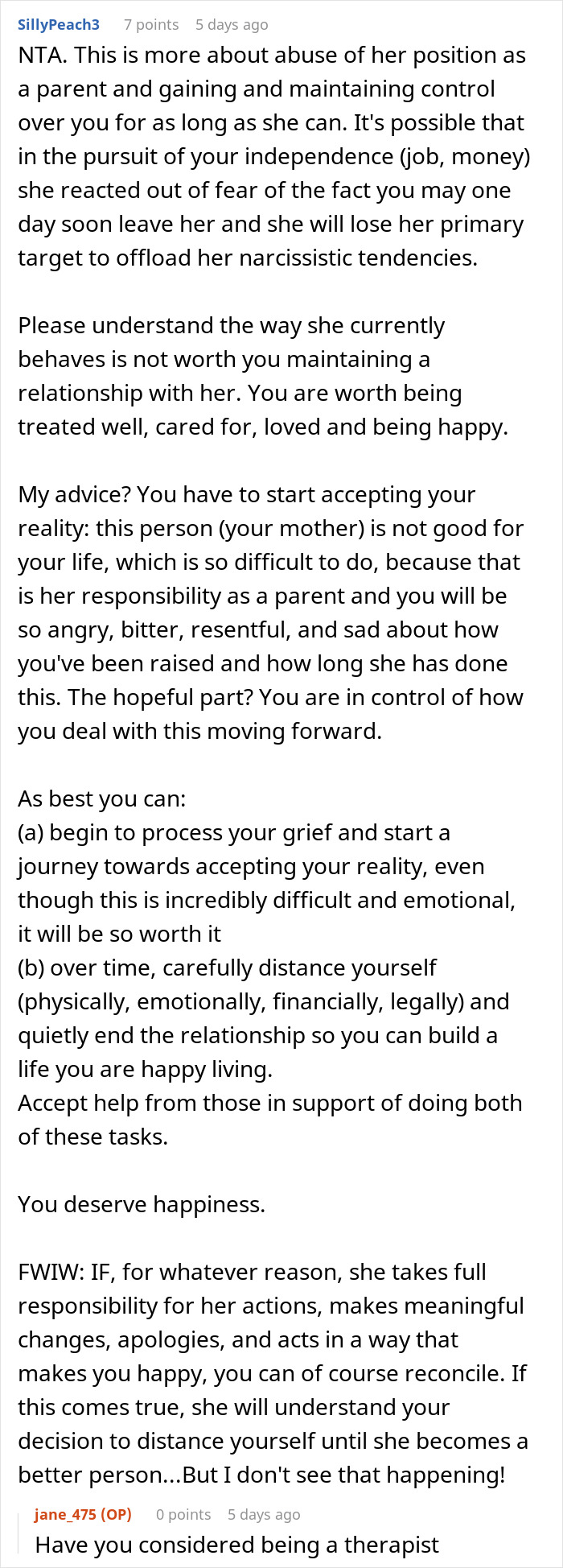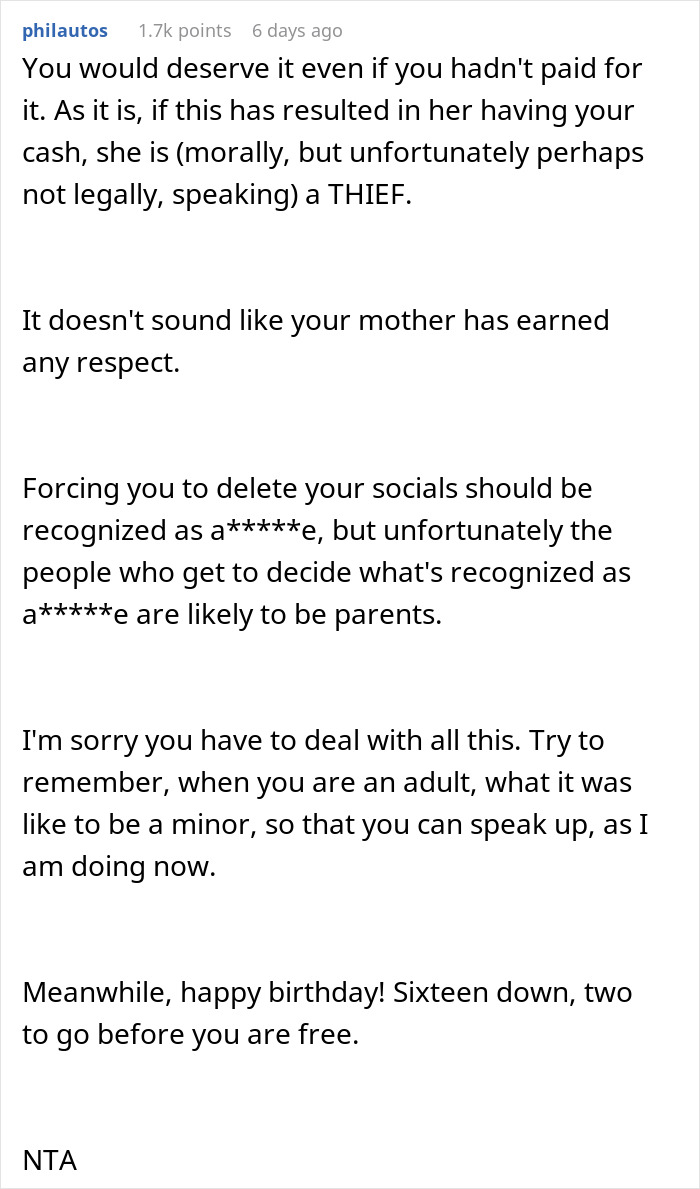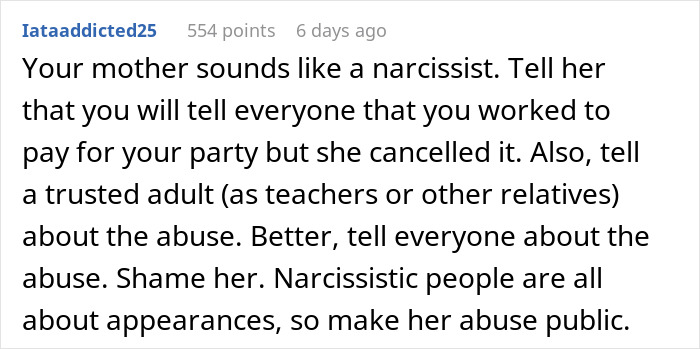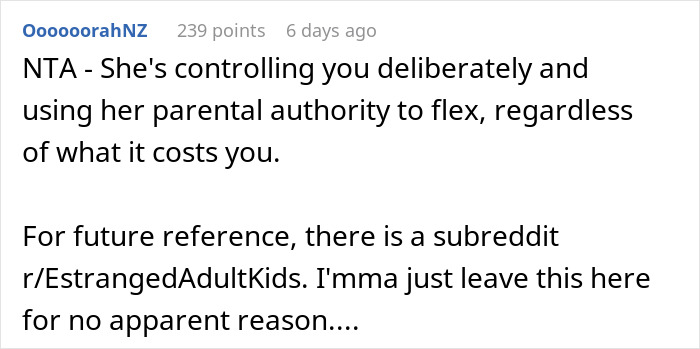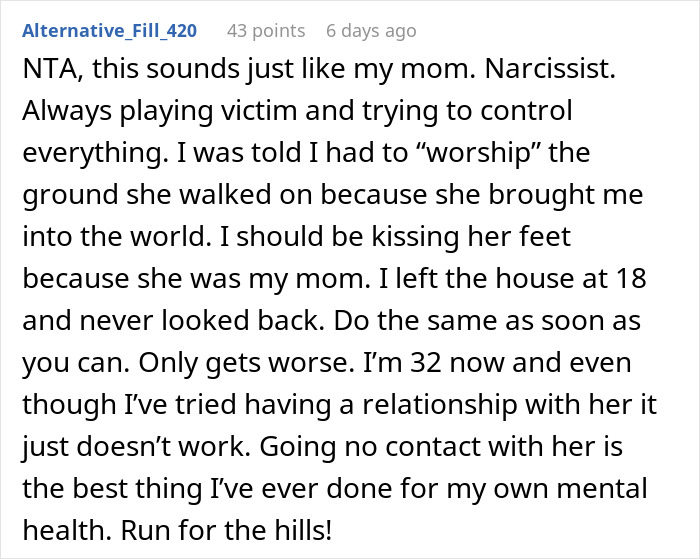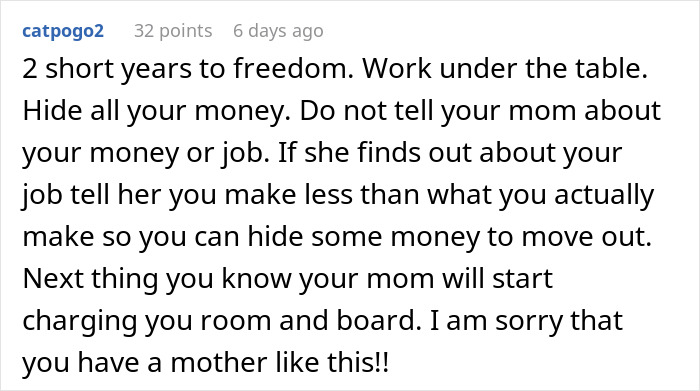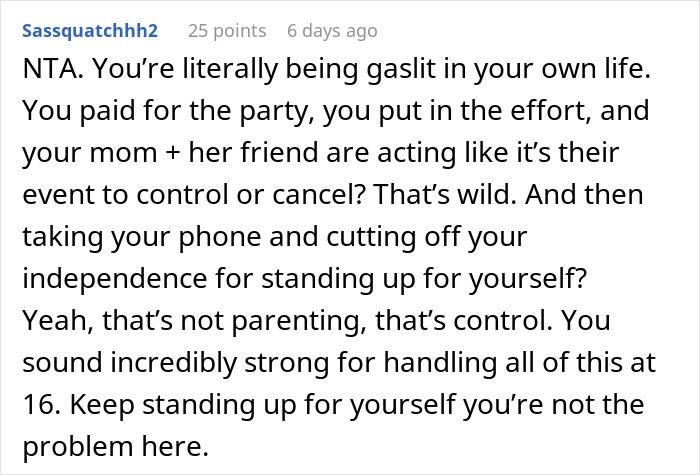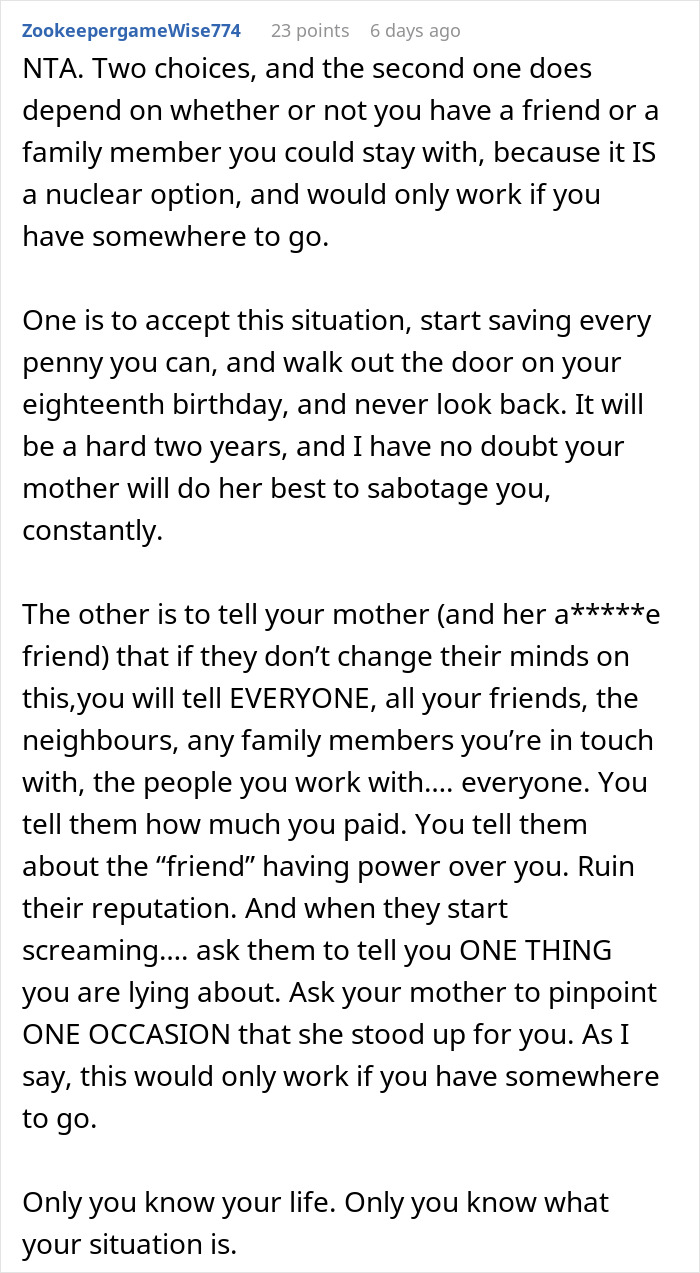Sixteen is an age when a child takes a step forward into adulthood. For teens who practically yearn to be free and independent, it’s a huge milestone. So what better way to celebrate it than with a sweet sixteen party? That is, if their parents allow it, of course.
Unfortunately, this teen had quite the struggle making her sweet sixteen happen. She worked hard to save up some money, and after she finally paid for most of it, her mom cancelled it just because she could. The girl tried protesting it, but only got called ungrateful, which she says is how things usually go in their household.
Scroll down to find the full story and conversation with a parenting success coach Sapna Rad, who kindly agreed to tell us more about the sweet sixteen milestone and parenting teenagers.
Many teenagers look forward to celebrating their 16th birthday

Image credits: vozdvizhenskayadina / envato (not the actual photo)
As did this girl, but unfortunately her mom cancelled it even though she paid for most of it
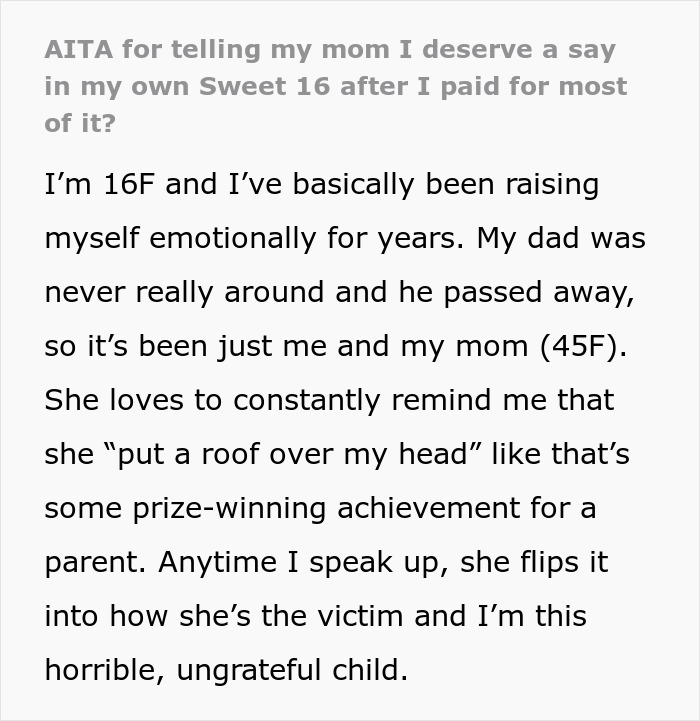
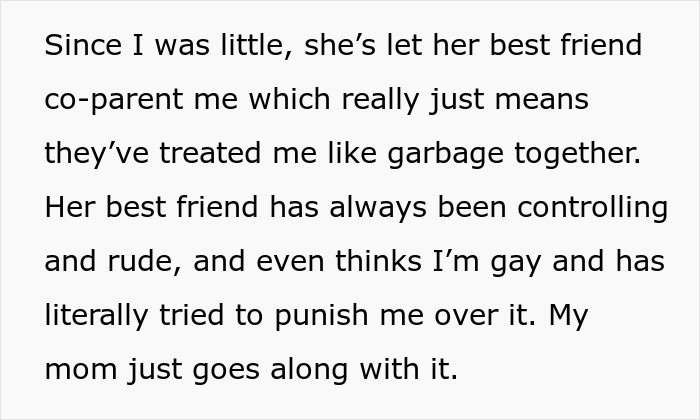
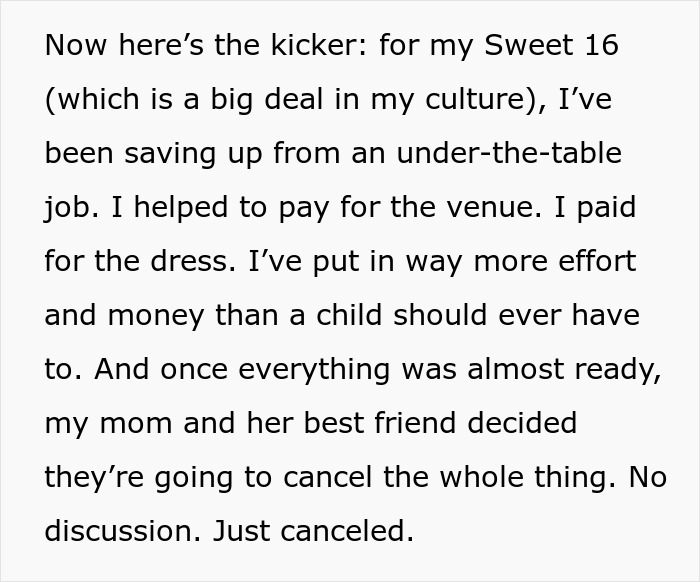

Image credits: Wavebreakmedia / envato (not the actual photo)
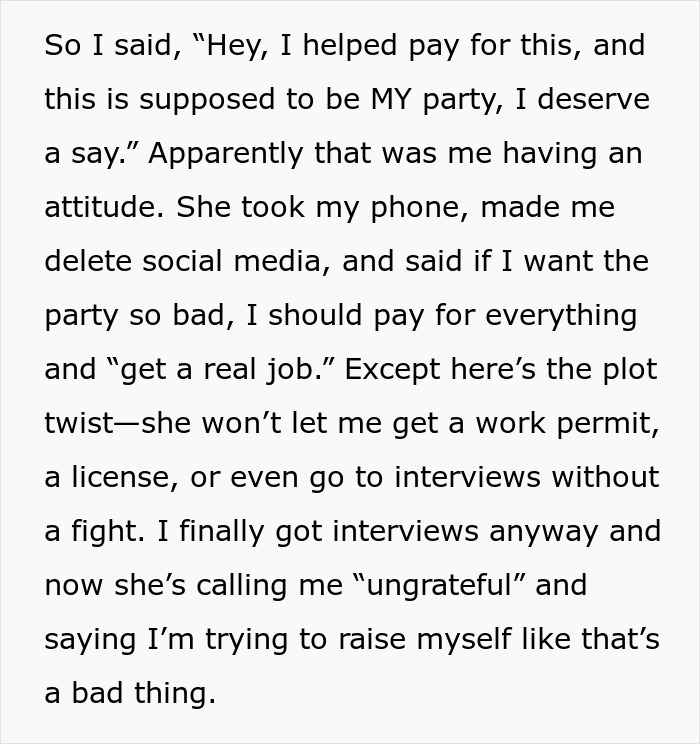
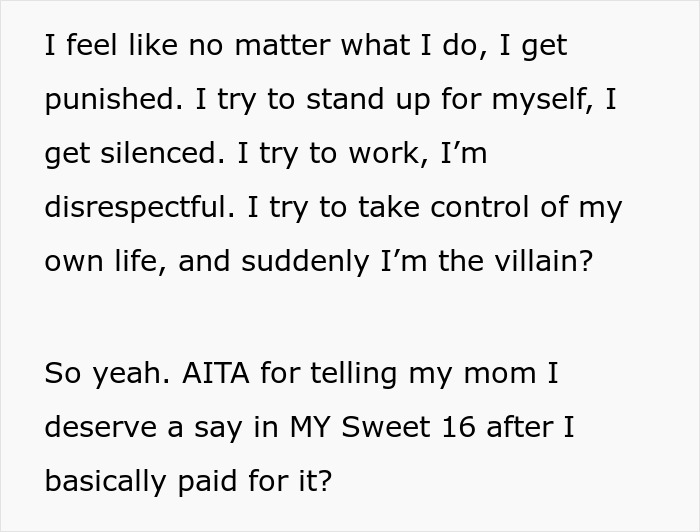
Image credits: jane_475
Sweet sixteen symbolizes moving from childhood towards adulthood
Parenting success coach Sapna Rad tells us that the sweet sixteen is such a meaningful milestone in a teenager’s life because it symbolizes moving from childhood towards adulthood. In this phase, a teen starts to explore their independence and identity.
“It’s the start of individuation, a psychological process of becoming one’s own person. Beyond parties and cakes, it’s a time when they are asking, “Who am I?” Recognizing this milestone helps both teens and parents honor the emotional growth and changing dynamics in the relationship,” Rad says.
Navigating the self-discovery journey can be challenging for teenagers, so it’s important that parents offer support along the way. Unfortunately, not everyone is capable of it due to various reasons.
“Most parents get threatened by their teens’ natural need to separate and, in response, often tighten control by micromanaging, dismissing feelings, or using fear and punishment to control behavior. These shut down communication, erode trust, and create a wedge,” explains Rad.
“The most effective way to support is by creating emotional safety, listening without wanting to fix, validating their experience, and staying curious. Support looks like holding firm boundaries while giving them space to make choices and learn from them. Trust and connection are the greatest gifts you can give a teen. Most importantly, become aware of our anxiety and fears. Teens need parents who are attuned and choose connection over control,” she advises.
“Teens don’t need perfect parents”

Image credits: Grey_Coast_Media / envato (not the actual photo)
Since some parents might fear their kids’ independence and have unprocessed anxiety, the relationship between them and their teen can turn unhealthy and controlling without them really noticing.
“Constant criticism, spying, or lack of autonomy are signs of control, not care. When communication becomes a power struggle and teens hide their truth to avoid shame or judgment, it’s time to look deeper,” says Rad, listing the signs of a toxic and controlling parent-teen relationship.
If teens find themselves in such a situation, they first have to realize that it’s not their fault and avoid blaming their parents. Then, they should talk to adults they feel safe around, like counselors, teachers, relatives, who can listen, support, and let them know that they are not alone, suggests Rad.
“Journaling, therapy, and learning emotional tools can help one process feelings and begin setting healthy boundaries. They can start to feel confident internally, even when external change feels impossible.”
Lastly, Rad wants to remind us all that “teens don’t need perfect parents. They need present, conscious ones who are willing to listen, repair, and relate. When we focus on connection over correction, the entire family thrives.”
The original poster provided more information in the comments
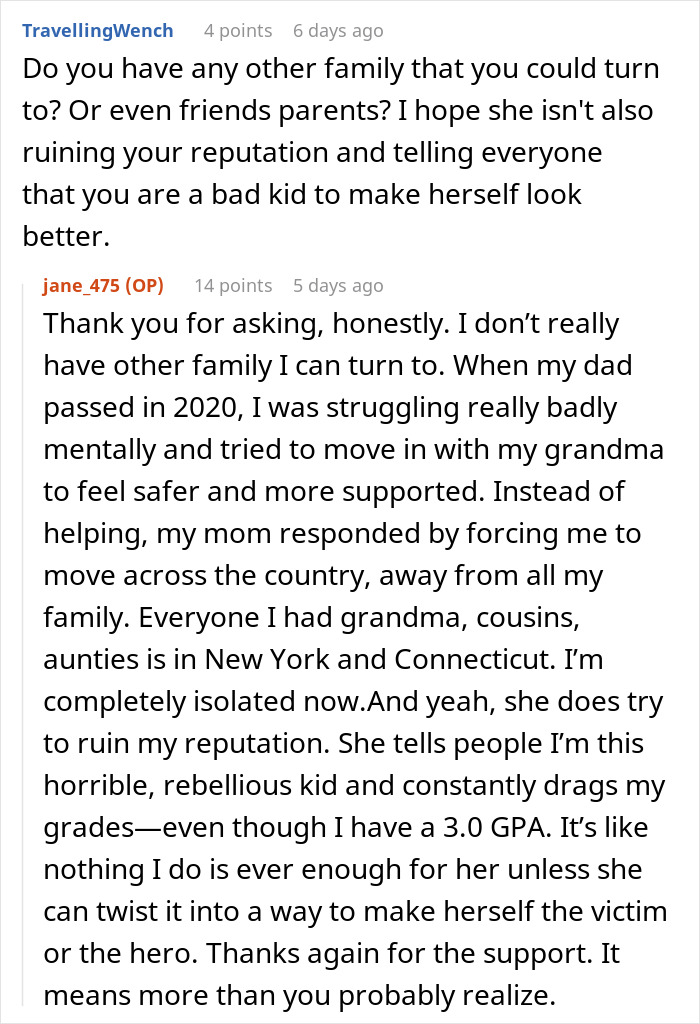

Most readers agreed that the teenager wasn’t in the wrong here
